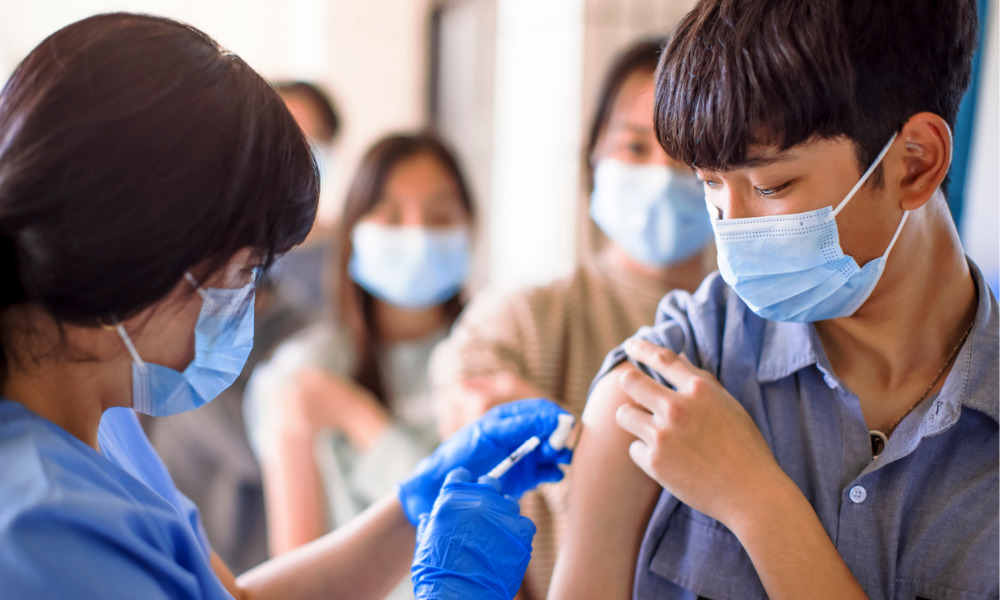
Singapore is well into promoting booster jabs

HR has a big role to play in encouraging staff to get the COVID vaccine in Singapore – but how about the government's latest booster strategy? Thus far, Singapore has had a high rate of success in vaccinating its workforce. As of end October, over 96% of eligible employees have received both COVID shots. A small proportion of employees remain medically ineligible for the mRNA shots, but officials have approved other vaccines like Sinovac for these individuals. HR leaders can thus help remind staffers to register for Sinovac shots if they’re keen on getting vaccinated and safely returning to workplaces.
Unfortunately, the past few months have shown that whether individuals were vaccinated or not, there's still a high chance of contracting COVID-19 or the more infectious Delta variant. Hence, Singapore has extended the national vaccination program to include booster shots. HRD finds out more about booster shots and how HR can help ensure the health and safety of their workforce.
Read more: Unvaccinated employees 'banned' from Singapore’s workplaces
According to the Ministry of Health (MOH), the booster dose of the mRNA vaccine can offer added protection. “While the primary series of the recommended COVID-19 vaccines provides good protection against severe disease, protection against infection could decrease over time,” MOH said on its website. “An increased risk of vaccine-breakthrough infections has been observed locally. Booster vaccination is therefore needed to reduce the risk of COVID-19 infection and transmission.”
Additionally, Health Minister Ong Ye Kung this week (Nov 15) said in a press statement that a combination of the Moderna booster jab and the Pfizer-BioNTech shots will enable a “slight edge” in reducing the risk of infection. This combination can further reduce the risk of infection by 72% based on a recent MOH study. Taking a Pfizer booster will also be effective, though protection does drop slightly to 62%.
MOH has recommended that those who have taken two initial doses of Sinovac/Sinopharm to also take mRNA-based vaccines, such as those by Moderna or Pfizer, to boost their protection against the virus.
As for eligibility, MOH stated that you can book appointments for the booster dose of the mRNA vaccine about six months after the first two shots. They've recommended the following groups to take the additional shots:
The short answer is ‘no’. Whether you take the booster jabs or not, officials have made clear that you’re considered ‘fully vaccinated’ as long as you’ve received the first two doses of a COVID vaccine. You can thus go about your life and remain exempted from any exclusionary safe management measures in public or at workplaces.
Read more: Can you require new hires to be vaccinated?
Thus far, MOH has found “good international data that a booster dose of the vaccine is safe” while enhancing protection against the virus. Individuals can expect similar side effects like the first two shots of the mRNA vaccines. MOH assured that most side effects are mild or moderate, and will usually get better within a few days.
This is where HR can step in with a company policy to support staff if they suffer from any side effects. The policy can be similar to the ones offered for the first two initial shots, such as days off to go for the jab and to rest and recover.
HR can also offer access to healthcare information or tele-medicine services to help employees “cut through the noise” of misinformation. “[HR can] ensure access to health resources or primary care services,” Dr Low Kiang Wei, medical director at International SOS told HRD. “Besides basic healthcare benefits, [companies] can offer COVID-specific coverage via tele-consultation for example. This is especially because we know that booster shots may result in side effects.
“Also, know that while employees may not have the side effects like fever or muscle aches, they may worry more than usual about prolonged effects [of the shots].” Leaders can therefore help ease their worries by offering medically sound advice or official sources of information that can answer any doubts or concerns about the shots. All in all, HR should determine what kind of support staff desired and use the ideal platforms to communicate with employees and keep them updated as the Singapore government and health officials frequently whizz through multiple policy changes.